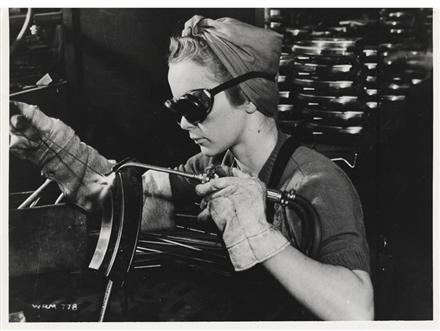Filed under: Uncategorized

I left Bucharest when I was 9. My parents were political refugees of the Ceausescu regime. I came back to Romania after 20 years to discover a “postcommunnist” atmosphere that sings praises to the market and condemns any critique of global capitalism as “Stalinist.” Concepts like the commons, the collective, and activism are dismissed because of the disrepute of their communist past. When activism becomes outlawed on the level of thought, passivity is legitimated as an everyday reality.
Together with some friends, I started D Media in Cluj in 2002. We wanted to create a context for media activism that didn’t exist and to make the practice of self-organization contagious. We organized events to introduce unfamiliar ideas like do-it-yourself, net radio, free software, copyleft. Some members of D Media were also active in similar initiatives: Indymedia Romania, Eclectic Tech Carnival (tech carnival for women), and the feminist festival LadyFest. What was common to these groups was an intersection of culture, technology and social critique.
Since 2004, D Media’s main activity has been video production. This marked a shift from net activism, and an initial interest in the international scene around free software and alternative net culture, to video activism that addressed problems specific to Romania. The first video project was Real Fictions (2004-2005), four documentaries made in collaboration with local teenagers. The two I collaborated on, Folklore and Paint Romanian, focused on the rise of the extreme right in Romania, from political parties like PRM (whose candidate received 30% of the vote in the 2000 presidential election) to small neofascist groups. Real Fictions placed itself in the tradition of “do-it-yourself” media, seeking to provoke social change not through ideas but through the process of production, by eliminating difference between experts who create culture and passive consumers. After the project, however, it seemed that by focusing exclusively on transforming spectators into producers, Real Fictions didn’t pay sufficient attention to aesthetics. It’s not enough to put the tools in the hands of “the people,” it’s also a question of how the tools are used to produce meaning, and whether it follows the dominant form of communication (propaganda), or tries something different.
Some of D Media’s subsequent videos engaged more directly with questions of meaning and form. Made in Italy (2005-2006), a collaboration with Candida TV from Rome, examined the delocalization of (16,000) Italian companies to Romania and the migration of (2 million) Romanian workers to Italy. The reality of foreign investment differed from the initial promise: labor rules weren’t respected, working conditions were poor, and companies delocalized further east when wages began to increase. Many Romanians left to work abroad rather than stay to compete for jobs paying €70 a month. We wanted to stress this connection since public discourse in Romania has uncritically celebrated foreign investment. Made in Italy introduced a counter-story to the dominant one, but it is not a story told in a single voice. The video questions how montage can be used to create a sense of totality or disrupt it. It does not present the unified voice of the people, but a clash of different perspectives: owners of Italian companies in Romania, workers, trade unions, and Romanian migrants in Italy. The audience has to piece together the fragments and draw their own conclusions.
The current project, Commonplaces of Transition (2007-2008), is a series of videos on labour, activism and borders made in collaboration with Videoaktiv in Germany, Interspace in Bulgaria, and K:SAK in Moldova. Precarious Lives focuses on the subjective stories of 10 Romanian women working in different jobs, in different countries. It challenges the dominant theories of precarity (and of the precariat as the new proletariat) for ignoring differences of gender and limited mobility, and economic disparities between the first and third worlds. Two or three things about activism is a self-reflexive work, hacking the tradition of activist video from the inside. It opens with a quote by Godard about making political film (which represents political struggles) versus making film politically. Making film politically means questioning how activist film produces meaning and disrupting the rules of the game. Two or three things begins with a richness of sound and image, immersing the viewer in stories of Romanian activists, but increasingly becomes more bare and fragmented. The form contributes to the goal: in a Romanian context in which activism is weak, made up of isolated groups that don’t collaborate, the video hopes to be a tool for self-reflection among activists, asking them to see their position from the point of view of the others. It doesn’t represent Romanian activism, but tries to intervene in it, to provoke change.
See works of D Media, Indymedia Romania and Ladyfest Romania at HACK.Fem.EAST


